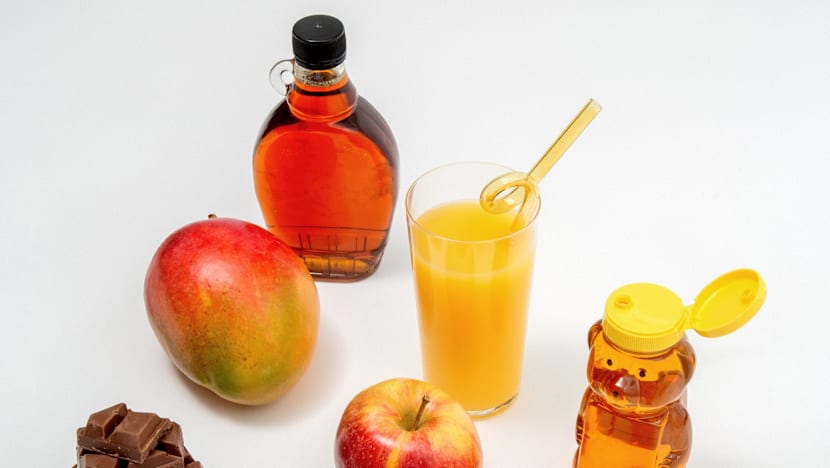Health
Navigating Sweeteners: Are Natural Options Healthier?

The debate over whether some sugars are “less bad” than others continues to gain traction, particularly regarding natural sweeteners like honey and maple syrup. While many perceive these alternatives as healthier options compared to refined sugars found in processed foods, nutrition experts caution against this assumption.
Nutritionists emphasize the distinction between sugars found in whole foods and those added during processing. According to Karen Della Corte, an assistant professor of nutritional science at Brigham Young University, the body processes sugars differently based on their food source. Whole fruits and vegetables contain fiber, which slows digestion and mitigates sharp blood sugar spikes. In contrast, sweeteners like refined sugar and high-fructose corn syrup are absorbed rapidly, leading to significant increases in blood glucose levels.
Kimber Stanhope, a nutrition researcher at the University of California, Davis, warns that even juices from fruits and vegetables may have similar effects due to the removal of beneficial fiber during processing. Regularly experiencing drastic blood sugar spikes can result in insulin resistance, a precursor to Type 2 diabetes. Furthermore, excess sugar intake can lead the liver to convert sugar into fat, potentially resulting in metabolic dysfunction-associated steatotic liver disease (MASLD), a chronic condition that may increase the risk of liver cancer and failure.
In light of these health risks, federal health officials recommend limiting added sugars to no more than 50g per day. The American Heart Association suggests even stricter limits, advising men to consume no more than 36g and women 25g daily.
The Truth About “Natural” Sweeteners
Despite their popularity in health-focused circles, sweeteners like honey, maple syrup, and agave nectar are still classified as added sugars and can pose health risks when consumed in excess. Dr. Stanhope points out that the body does not differentiate between sugars from honey and those from table sugar or agave syrup; they are metabolized into the same molecules.
Questions remain regarding whether some sweeteners are genuinely “less bad” than others. Most studies exploring this topic have been funded by industry stakeholders, raising concerns about their reliability. For example, a study funded by the maple syrup industry in 2024 claimed that maple syrup was superior to table sugar for blood sugar management and heart health. However, Dr. Stanhope noted that the analysis methods might have skewed the results.
A well-designed study from 2015, though partially funded by the honey industry, provided more credible insights. In this study, 55 adults consumed a mixture of water and either honey, high-fructose corn syrup, or sucrose (table sugar) daily for two weeks, each containing 50g of added sugars. The findings revealed no significant differences in blood glucose, cholesterol, or inflammation levels among the participants, indicating that honey did not provide any advantages over other sweeteners.
Exploring Alternatives
For those considering artificial sweeteners such as aspartame (NutraSweet, Equal) or sucralose (Splenda), research is ongoing to understand their long-term health effects. Individuals looking to satisfy their sweet cravings might explore natural options without resorting to added sugars or artificial alternatives.
Fruits and vegetables with inherent sweetness, such as berries, apples, and roasted sweet potatoes, can provide a nutritious alternative. Additionally, incorporating a small amount of sugar, such as a drizzle of honey over apple slices, or opting for dark chocolate—which generally contains less sugar than milk chocolate—can also be enjoyable choices.
As the discourse around sugar consumption evolves, understanding the differences between various sweeteners remains essential for making informed dietary decisions.
-

 Lifestyle4 months ago
Lifestyle4 months agoHumanism Camp Engages 250 Youths in Summer Fest 2025
-

 Sports4 months ago
Sports4 months agoDe Minaur Triumphs at Washington Open After Thrilling Comeback
-

 Business4 months ago
Business4 months agoKenvue Dismisses CEO Thibaut Mongon as Strategic Review Advances
-

 Sports4 months ago
Sports4 months agoTupou and Daugunu Join First Nations Squad for Lions Clash
-

 Top Stories4 months ago
Top Stories4 months agoColombian Senator Miguel Uribe Shows Signs of Recovery After Attack
-

 Health4 months ago
Health4 months agoNew Study Challenges Assumptions About Aging and Inflammation
-

 World4 months ago
World4 months agoASEAN Gears Up for Historic Joint Meeting of Foreign and Economic Ministers
-

 Business4 months ago
Business4 months agoOil Prices Surge Following New EU Sanctions on Russia
-

 Entertainment4 months ago
Entertainment4 months agoDetaşe-Sabah Violin Ensemble Captivates at Gabala Music Festival
-

 Entertainment4 months ago
Entertainment4 months agoBaku Metro Extends Hours for Justin Timberlake Concert
-

 Business4 months ago
Business4 months agoU.S. House Approves Stablecoin Bill, Sends to Trump for Signature
-

 Top Stories4 months ago
Top Stories4 months agoRethinking Singapore’s F&B Regulations Amid Business Closures









